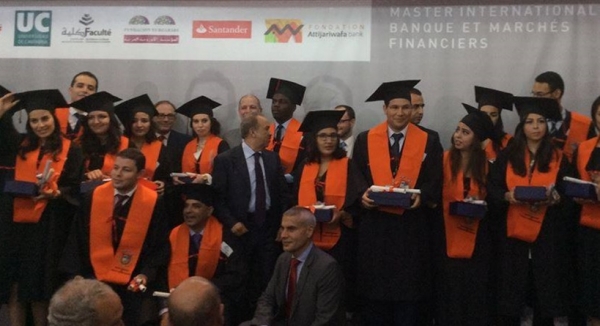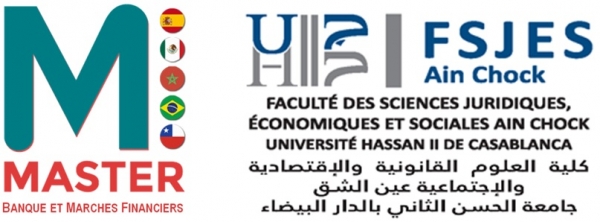El Máster de Banca y Mercados Financieros de Casablanca certifica sus títulos en blockchain
El Máster de Banca y Mercados Financieros de Casablanca, que realizan las universidades Hassan II de Casablanca, de Marruecos, y Cantabria, de España, ya dispone de sus primeros títulos universitarios en blockchain, registrados y certificados por SmartDegrees.
Los titulados de este prestigioso máster pueden gestionar su título universitario desde su smartphone, mediante una app gratuita que les permite compartir los datos del título con plataformas de trabajo, empresas reclutadoras y terceros, garantizando la inviolabilidad del título, al estar registrado y certificado en la tecnología de registro distribuido, blockchain.
El máster quiere aprovechar las oportunidades que proporciona la tecnología blockchain en el sector de la educación superior, así como las capacidades tecnológicas desarrolladas por la plataforma SmartDegrees.
Sus principales ventajas: agilidad, comodidad y seguridad en blockchain
Los beneficios para los titulados son las siguientes:
- Facilita la puesta en valor del título, al permitir su compartición ágil y cómodamente con otras partes.
- El titulado es propietario soberano de sus datos y decide cómo, dónde y cuándo mostrarlos.
- La app y la tecnología soporte, blockchain, garantizan su inviolabilidad y evitan el fraude.
Se trata de los primeros títulos universitarios de Marruecos registrados en una red blockchain madura, escalable y con el potencial que permiten los smart contract, como Quorum, basado en Ethereum.
“Esta certificación facilita al titulado su puesta en valor en el mercado de trabajo y evita cualquier falsificación, gracias a la tecnología blockchain. Estamos muy satisfechos con este servicio innovador, que prevemos extender a los titulados de años anteriores”, según el profesor Alaoui Mdaghri Abdelouahed, director del máster.
Acerca del Master de Banca y Mercados Financieros de Casablanca
El Máster de Banca y Mercados Financieros es impartido conjuntamente por la Universidad Hassan de Casablanca y la Universidad de Cantabria desde el año 2007 y cuenta con el apoyo técnico de dos grandes bancos, Attijariwafa Bank y Banco Santander. Sus titulados obtienen doble titulación por parte de ambas universidades y es el programa de posgrado más prestigioso del Magreb y el segundo del continente africano en su especialidad, según Jeune Afrique, la revista de habla francesa más prestigiosa y de mayor tirada en África.
Acerca de SmartDegrees
SmartDegrees es una plataforma para el registro y certificación de títulos académicos y formación corporativa, con servicios asociados, que permiten su puesta en valor en el mercado de trabajo y en la sociedad, a la vez que hace inviolables los mismos, asegurando su validez indefinidamente.
Cobertura en los medios: elEconomista.es, DiarioBitCoin, Empresa Exterior, News 1, The Bitcoin Times, Le Matin, CoinTelegraph, Pokemag, Jamiati, Pages Afrik, EcoActu, Imperium, ConsoNews, Aujourd’hui
Artículos relacionados: Los títulos blockchain de SmartDegrees funcionan en España y Marruecos




